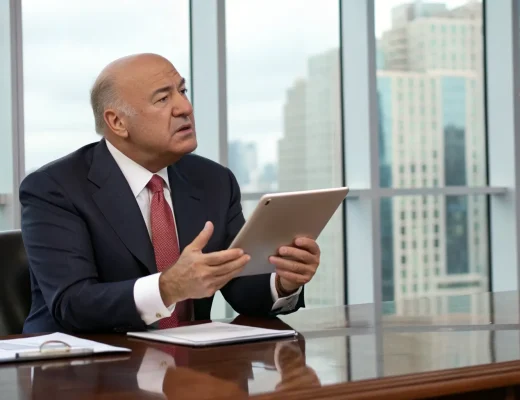Executive intuition, often mischaracterized as impulsive or emotional decision-making, actually represents a sophisticated process that integrates experience with data analysis. Research indicates that high-performing CEOs frequently utilize intuition as a vital component of their leadership toolkit, particularly when confronting complex business challenges.
Rather than viewing intuition as an innate talent, successful business leaders approach it as a skill that can be developed and refined over time. This perspective allows executives to systematically improve their decision-making capabilities, particularly in situations where traditional analytical frameworks provide insufficient guidance.
The Science Behind Executive Intuition
What many mistake for gut feeling is actually the brain’s ability to process vast amounts of information rapidly, drawing on accumulated knowledge and experience. Top executives don’t see intuition as a mysterious force but as a practical tool that complements data-driven analysis.
This integrated approach proves especially valuable in ambiguous business environments where complete information is unavailable or where traditional analysis reaches its limits. In these scenarios,
intuitive decision-making can provide clarity when spreadsheets and reports cannot.
“Intuition isn’t about ignoring data—it’s about integrating experience with analysis to see patterns that might otherwise remain hidden,” explains one leadership expert who studies executive decision-making processes.
Developing Intuitive Leadership Skills
Research into executive performance identifies several practices that strengthen intuitive capabilities:
- Structured reflection – Setting aside time to review past decisions and their outcomes
- Contextual calibration – Testing intuitive judgments against real-world results
- Quiet listening – Creating space to recognize subtle patterns and signals
These practices help executives refine their intuitive abilities through systematic feedback and conscious development, much like any other professional skill.
Business schools and executive education programs have begun incorporating intuition training into their curricula, recognizing its importance in strategic leadership. These programs teach executives how to balance analytical thinking with intuitive insights.
Applications in High-Stakes Decision Making
The strategic value of intuition becomes most apparent during
critical business moments—acquisitions, market expansions, or crisis management situations. In these high-pressure scenarios,
leaders often face incomplete information and tight timeframes.
Studies of executive
performance indicate that leaders who consciously develop their intuitive capabilities make more effective decisions during these pivotal moments. They recognize patterns faster and integrate disparate information more effectively than those who rely solely on analytical frameworks.
This advantage extends beyond crisis management to innovation and competitive strategy. Executives with strong intuitive skills often identify market opportunities before they become obvious through traditional analysis.
The business
advantage comes not from replacing analytical thinking but from creating a decision-making approach that combines both modes of thinking. This integrated approach allows executives to navigate complexity with greater confidence and clarity.
As business environments become increasingly unpredictable, the ability to make sound judgments in uncertain situations becomes more valuable. Leaders who develop structured approaches to intuitive decision-making gain a significant edge in these challenging conditions.
For executives seeking to enhance their leadership capabilities, intuition is not a mysterious talent, but a practical skill that can be systematically developed through conscious practice and reflection.







